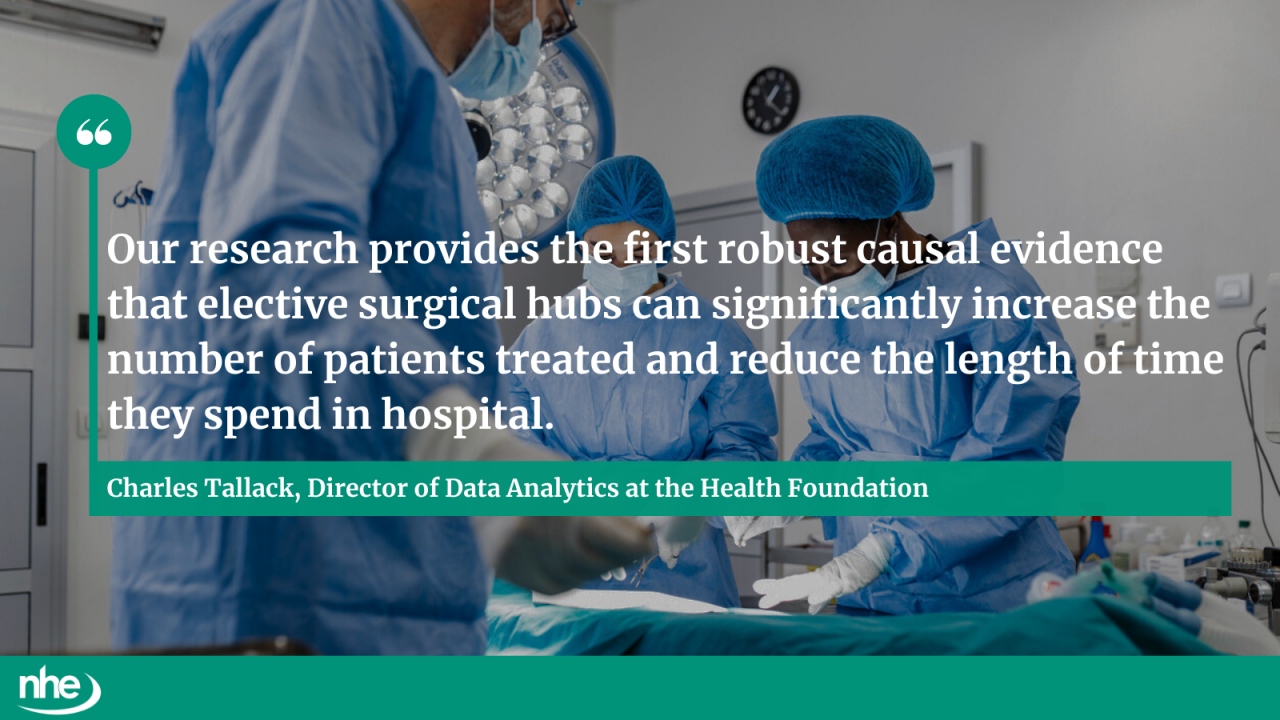New research from the Health Foundation has indicated that NHS surgical hubs could be crucial in the battle to tackle waiting lists, after it suggested they help staff carry out more procedures in a shorter amount of time.
There are currently 108 surgical hubs across the country, with another 26 scheduled to open before the end of next year. They are characterised as things that aim to:
- Improve productivity
- Reduce operation cancellations
- Streamline patient discharge
Research findings
Health Foundation researchers found that, compared to what would have been achieved without a surgical hub, 31 trusts in England with hubs in their first year completed 21.9% more high volume low complexity elective surgery – i.e., hip replacements, cataract removals, etc. This is tantamount to 29,000 more procedures.
The 23 trusts that established a hub before the pandemic, completed 11.2% more elective procedures of all kinds than they would have done without a hub – this has been estimated to be the equivalent of 51,000 extra procedures between April 2021 and March 2022.
June saw the overall waiting list stand at 7.6 million cases – 6.4 million individuals – with 1.2 million cases involving elective surgery.

The Health Foundation says that its research represents “the first robust causal evidence” that hubs of this kind can significantly improve productivity and help tackle waiting lists.
Good but not good enough?
NHS Providers’ CEO, Sir Julian Hartley, said: “Trust leaders and their teams have seen first-hand how having dedicated staff and resources in NHS surgical hubs can drive down waiting times, increase procedures and benefit patients.”
Despite this, he added that with waiting lists swelling for three months in a row, only significant investment in staff, estates and equipment will tackle the waiting time problem effectively.
Director of the NHS Confederation’s acute network, Rory Deighton, said that, while innovative methods like surgical hubs can make a “tangible difference” in cutting waiting lists, there is an opportunity to do more.
“Capital investment is necessary to repair crumbling estates and expand theatre space, and to boost productivity to the levels needed to reduce the backlogs,” he added.
“Our research suggests there needs to be a £6.4bn a year rise in capital funding so that the NHS can carry out essential repairs, replace out of date equipment and invest in the latest digital technologies.”
The Health Foundation’s data analytics director, Charles Tallack, said that with the new Labour government staking its credibility on the waiting list problem, surgical hubs could play an “important role”.
The National Health Executive digital magazine will be published tomorrow, where the Health Foundation will make the case for a dedicated strategy for artificial intelligence (AI) in healthcare.
Image credit: iStock



















